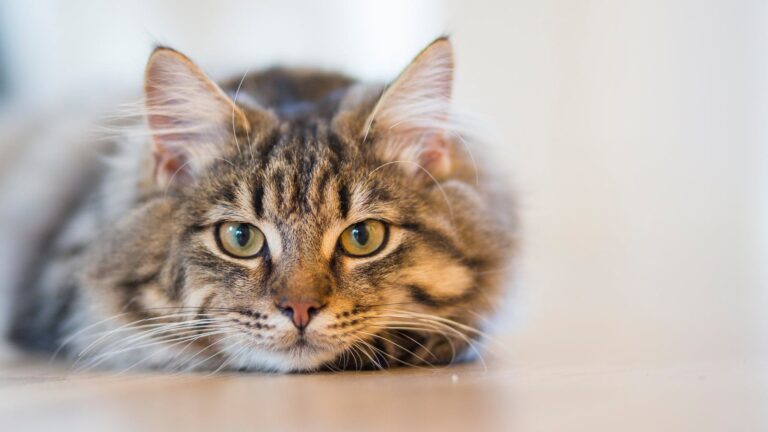Traveling With Your Cat – Tips for a Smooth Trip and Memorable Adventures
Traveling with your feline companion can be one of the most fulfilling experiences for both you and your pet. Traveling With Your Cat: Tips for a Smooth Trip is a comprehensive guide that will help you navigate the exciting yet sometimes daunting experience of bringing your beloved cat along for the journey. Whether you’re heading to a nearby town or embarking on a cross-country road trip, this article will provide you with essential tips and insights to ensure your travels are enjoyable and stress-free for both you and your furry friend.
Preparing Your Cat for Travel
Before setting off on your adventure, it’s crucial to prepare your cat properly. Cats can be creatures of habit, and introducing them to new environments and travel scenarios can be overwhelming if not approached thoughtfully.
Understanding Your Cat’s Temperament
Every cat has its own personality, which plays a significant role in how they will handle the traveling experience.
- Calm vs. Anxious Cats
Some cats are naturally more laid-back and adaptable, while others may be more anxious or sensitive to change. Understanding your cat’s temperament can help you tailor your travel plans accordingly. If your cat tends to be skittish, consider shorter trips leading up to the main journey to help acclimatize them to the traveling environment.
- Behavioral Signs of Stress
Look for behavioral signs such as excessive grooming, vocalization, or hiding when preparing for travel. Recognizing these signs can help you gauge your cat’s comfort level and allow you to make adjustments before hitting the road.
Vet Visits and Health Checks
A visit to the veterinarian should be on your travel checklist to ensure that your cat is healthy and ready for the journey ahead.
- Getting Vaccinations and Health Certificates
Depending on where you’re traveling, certain vaccinations may be required. A health certificate from your vet is often necessary, especially if you plan to cross state lines or stay in pet-friendly accommodations. This document shows your cat is healthy and up-to-date on their vaccinations.
- Discuss Medication Options
If your cat suffers from anxiety, your veterinarian may recommend calming medications or natural supplements. Discuss potential side effects and how to administer them before the trip.
Packing Essentials for Your Cat
Just like you wouldn’t leave home without your essentials, don’t forget about your cat’s needs!
- Litter Box and Supplies
Bring a portable litter box along with enough litter for your trip, especially for long journeys. Consider using disposable litter boxes for easy cleanup.
- Food and Water
Pack enough food for the duration of the trip and include water bowls or bottles for hydration. Remember to keep feeding times consistent to avoid upsetting your cat’s stomach.
- Comfort Items
Familiar items like blankets, toys, or even your worn shirt can provide comfort during stressful travel. The familiar scent can ease anxiety and help your cat relax.
Choosing the Right Mode of Transportation
The mode of transportation you choose can significantly impact your cat’s travel experience.
Road Trips with Your Cat
Road trips offer flexibility and often feel less stressful than other modes of transport.
- Car Safety Measures
Ensure your cat is secured in a carrier with proper ventilation. A safety harness attached to the seatbelt can also provide additional security. Avoid letting your cat roam freely in the car, as sudden stops could lead to injury.
- Frequent Breaks
Plan to take breaks every couple of hours to let your cat stretch and use the litter box. Make sure to keep your cat’s leash secured if you allow them out of the carrier. Use this time to offer treats and positive reinforcement.
Air Travel with Your Cat
Flying can be more challenging due to airport regulations and security checks.
- Carrier Requirements
Make sure your carrier meets airline specifications for dimensions and ventilation. Label your carrier with your contact information in case you get separated during the journey.
- In-Cabin vs. Cargo Travel
If possible, opt for in-cabin travel where you can keep your cat close. Cargo travel can be stressful for pets, so it should only be considered when absolutely necessary.
Train or Bus Travel
Some train and bus services are pet-friendly, providing another option for traveling with your cat.
- Research Policies Thoroughly
Each service has different rules regarding pet travel. Research beforehand to ensure your cat meets any requirements and that you have the necessary reservations.
- Prepare for Shared Spaces
Keep in mind that traveling on public transport means being in closer proximity to other passengers. Be sure your cat is comfortable with strangers and secure in their carrier.
Creating a Comfortable Environment During Travel
Once you hit the road (or sky), creating a comfortable environment for your cat becomes paramount.
Temperature Control
Cats can be sensitive to temperature changes, making it important to monitor their comfort levels during travel.
- Air Conditioning vs. Heating
Whether you’re in a car or plane, ensure that your cat is not too hot or too cold. Use air conditioning or heating appropriately, as needed, to maintain a steady temperature—ideally between 70°F and 75°F.
- Ventilation in the Carrier
Ensure the carrier is well-ventilated, allowing fresh air to circulate. This will help reduce anxiety and keep your cat comfortable throughout the trip.
Eliminating Noise Disturbances
Excessive noise can frighten your cat and cause stress during travel.
- Soothing Music or White Noise
Consider playing calming music or white noise to drown out disturbing sounds while traveling. There are playlists specifically designed for pet relaxation available online.
- Avoiding Loud Locations
When stopping for breaks, try to find quieter places away from loud noises like traffic or crowds. A peaceful environment can aid in keeping your cat calm.
Keeping Your Cat Entertained
Boredom can increase anxiety, so it’s beneficial to have strategies to entertain your cat during travel.
- Interactive Toys or Treats
Bring along some toys or puzzle feeders filled with treats to keep your cat busy. Engaging them in play can take their mind off the journey and reduce stress levels.
- Periodic Playtime Stops
At rest stops, take a few moments to play with your cat. This provides mental stimulation and allows them to release pent-up energy from being confined for a while.
Accommodations and Settling In
Finding suitable accommodations goes beyond looking for pet-friendly hotels; it involves ensuring a smooth transition for your cat upon arrival.
Researching Pet-Friendly Places
Not all hotels are created equal when it comes to welcoming pets, so research is key.
- Understanding Pet Policies
Read the fine print on pet policies, including fees, size restrictions, and areas where pets are allowed. Also, inquire whether there are designated pet relief areas.
- Look for Amenities
Some hotels offer special amenities for pets, such as play areas, walking services, or even pet spa treatments. Finding a place that caters to your cat’s needs will enhance their stay.
Creating a Safe Space
Once you’ve arrived, it’s essential to create a safe space for your cat to settle into.
- Setting Up a Temporary Home Base
Designate an area in your room with your cat’s bed, toys, and litter box. Allow them to explore at their own pace while feeling secure in their surroundings.
- Gradually Introducing New Spaces
If you’re staying somewhere longer, gradually introduce your cat to different areas of the accommodation rather than overwhelming them all at once.
Monitoring Behavior and Adjusting
Keep an eye on your cat’s behavior after settling in.
- Signs of Comfort or Stress
Observe how your cat reacts to the new environment. Are they exploring, or do they seem to hide? If they look stressed, return them to their designated safe space until they feel more at ease.
- Adjusting the Environment
Make necessary adjustments based on your observations. For example, if your cat seems overwhelmed by noise outside, close the curtains and turn on soothing music.
| Activities | Before Travel Preparation | During Travel Comfort | Post-Arrival Settling |
|---|---|---|---|
| Vet Visit | Schedule health check | Check medications | Monitor behavior |
| Packing | Food, litter, toys | Secure carrier | Create safe space |
| Transportation | Choose safe options | Manage temperature | Introduce areas slowly |
Conclusion
Traveling with your cat can be a rewarding experience that deepens your bond and creates lasting memories. By thoroughly preparing for the journey, selecting the right transportation, and creating a comfortable environment, you can help alleviate stress for both you and your feline companion. Embrace the adventure together as you explore new places and enjoy quality time on the road. With these insights in hand, your next trip with your cat is sure to be successful, enjoyable, and smooth!







